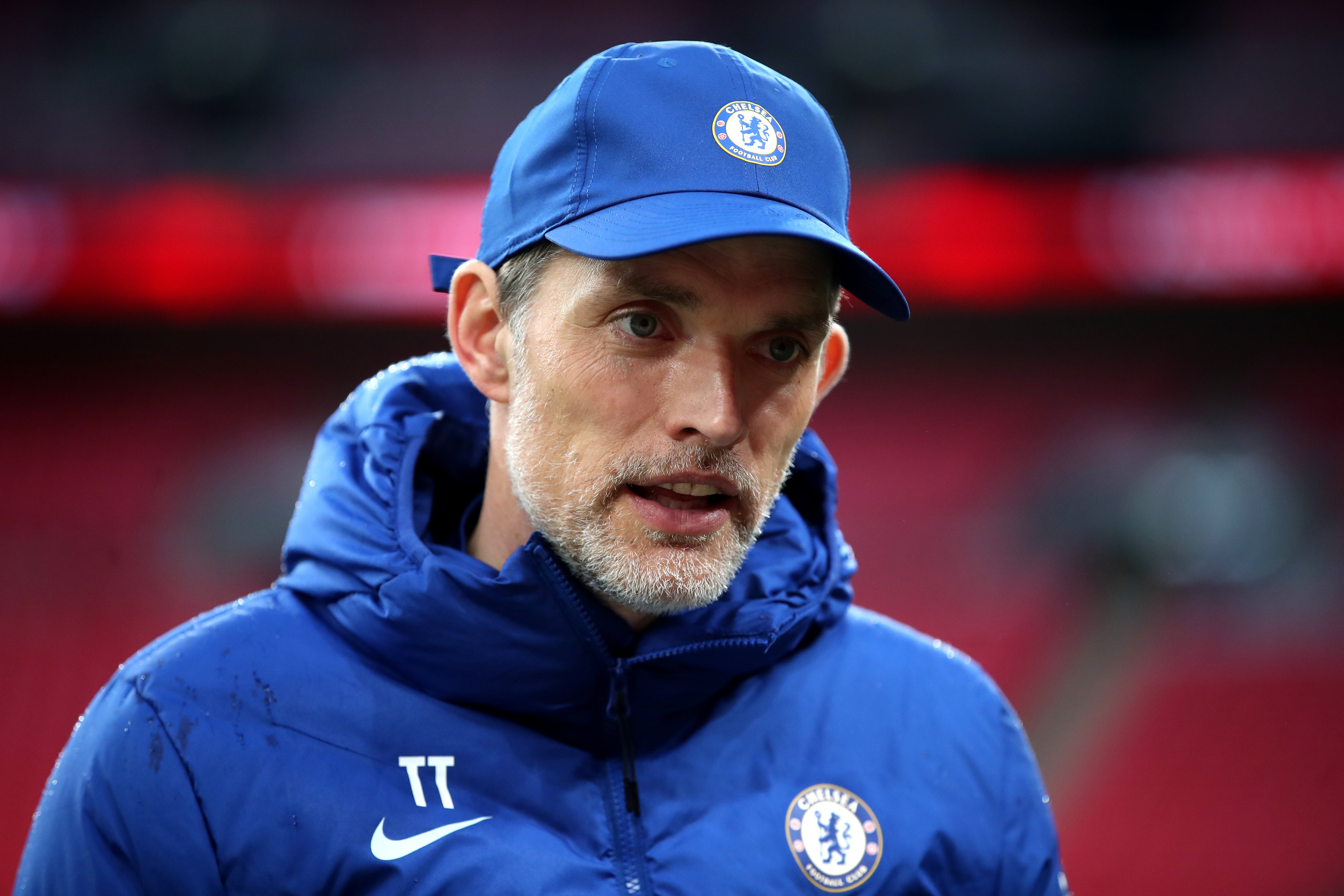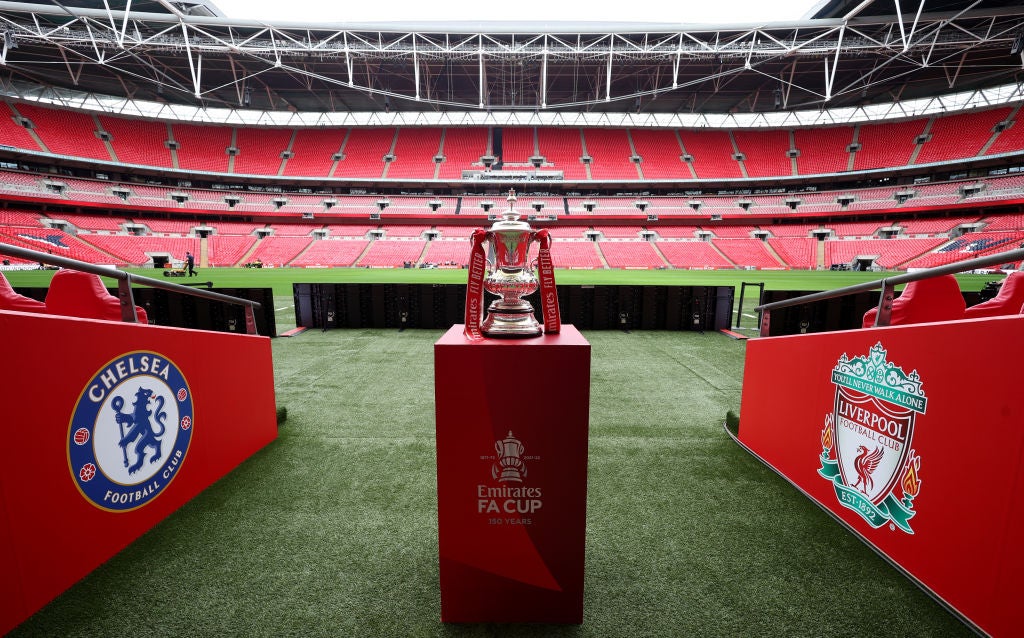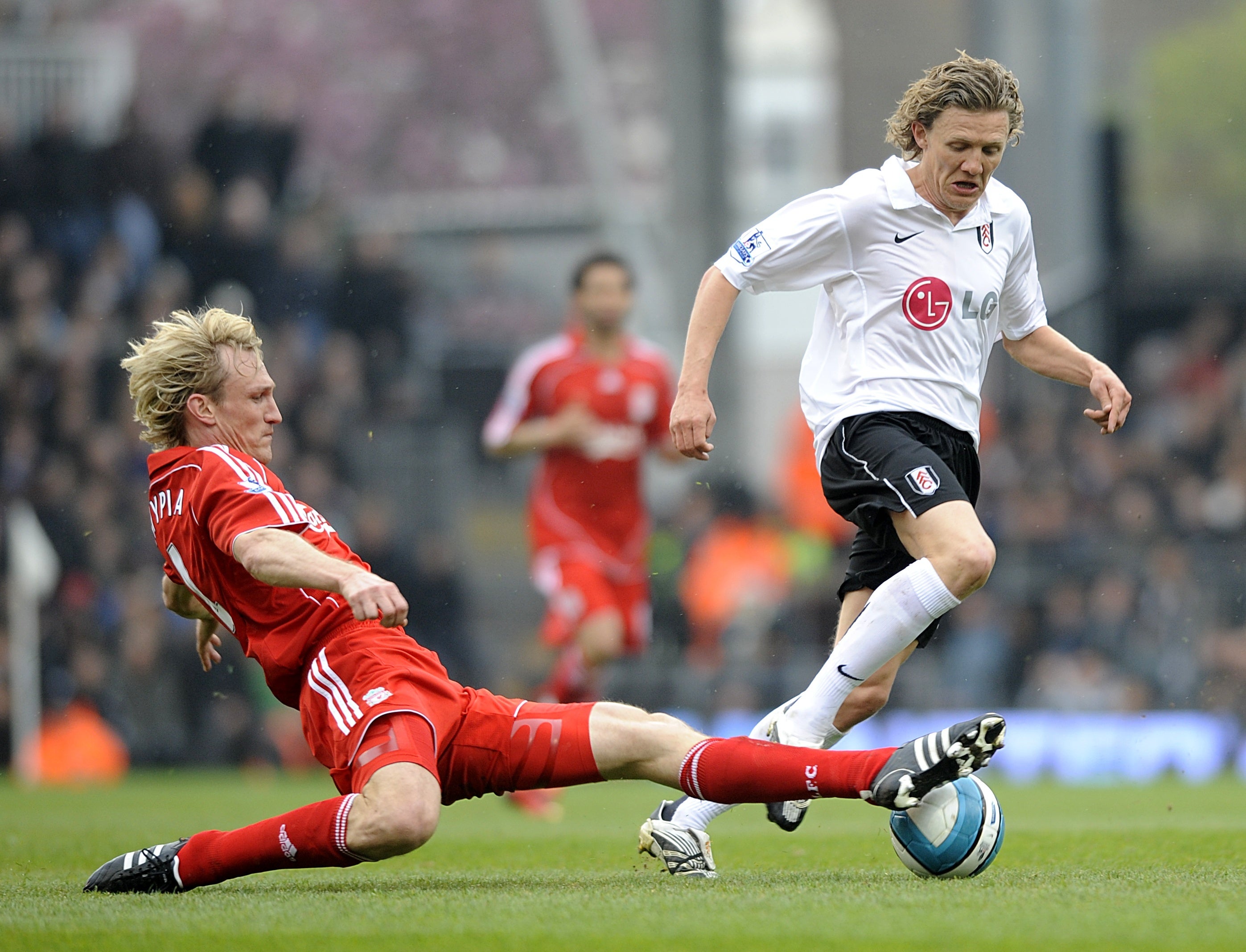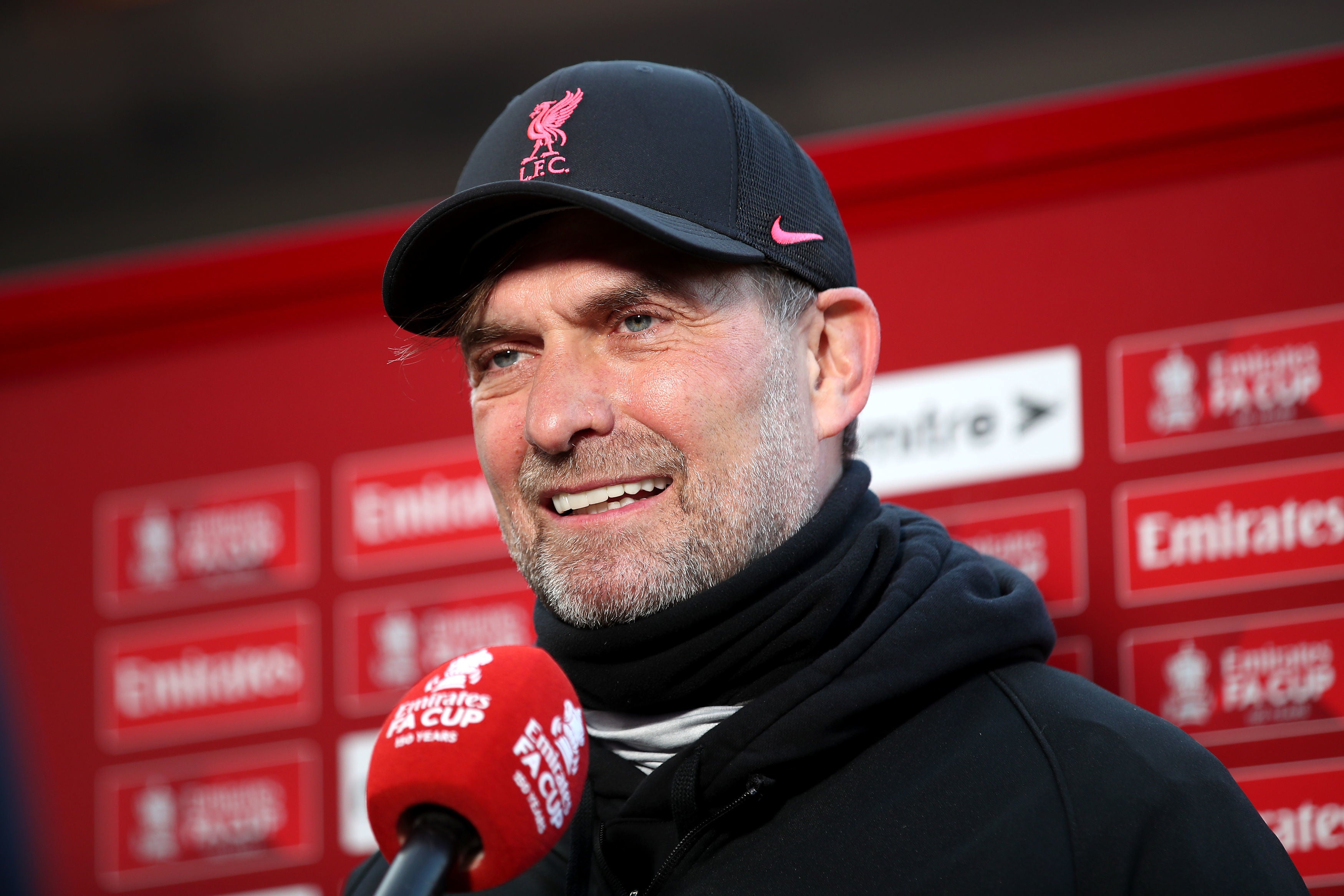Liverpool vs Chelsea is a modern rivalry steeped in FA Cup history
There is always a sense of theatre around matches between Chelsea and Liverpool.. The teams meet today at Wembley in the FA Cup final and if the match has anything like the drama of February’s EFL Cup final, it will be a classic.
Jurgen Klopp’s team emerged victorious three months ago after a humdinger of a 0-0 draw and a penalty shootout where the tension built to unbearable levels. For much of the past two decades there have been attempts to manufacture a rivalry between the clubs that goes beyond the natural levels of antagonism. This fixture has not needed an extra helping of friction. It has an edge that goes back way beyond the Jose Mourinho-Rafa Benitez period of the 2000s and some of the first shots were fired in the FA Cup.
Both clubs took a long time to make an impact on the world’s oldest knockout tournament. Their 1965 semi-final showdown had huge significance. One of the cliches used around the cup is that it gives a chance for “unfashionable teams” to capture the public imagination. In the mid-60s, Liverpool and Chelsea were the most fashionable sides in the game.
These clubs assumed a cultural significance that went beyond the football arena in a decade when British society changed rapidly. The Swinging Sixties were reflected in the image of the teams. Beatlemania swept the nation and beyond and Liverpool were caught up in it. Bill Shankly’s team won the title in 1964 when the world’s eyes were on Merseyside. Much of the fame of the Kop stems from that moment, when a BBC Panorama film crew came to Anfield to capture the moment Liverpool won the league. Had The Beatles emerged a year earlier than they did, the cameras might have descended on Goodison Park because Everton were champions in 1963. An accident of history projected Anfield into the wider public consciousness.
At the same time, Chelsea became one of the symbols of ‘Swinging London.’ The King’s Road was the most cutting edge of the capital’s shopping areas and Stamford Bridge was a stone’s throw from the boutiques of one of the world’s most famous streets. Celebrities and actors flocked to SW6 on Saturday afternoons. Chelsea had glamour. They had Raquel Welch in the stands, while Liverpool had Cilla Black. The London club had the edge in that respect.
Recommended
Their FA Cup semi-final was one of the landmark games in the Shankly era. Neither of these teams had won the FA Cup, which was a much more prestigious achievement than even winning the title at the time. Chelsea, who had already won the League Cup earlier in the campaign, were led by one of the new generation of managers.
Like Shankly, Tommy Docherty was a Scot. He was 15 years younger than the Liverpool manager and was signed by Preston North End as Shankly’s replacement when the older man’s playing days were coming to an end. Both men were full of swagger and Docherty suited the flash King’s Road ethos in the same way Shankly projected Merseyside’s earthy solidarity. Their teams reflected their personalities, from their kits to their approach on the pitch. Under previous managers Chelsea and Liverpool wore white shorts. Docherty switched to all blue around the same time Shankly opted for all red.
Liverpool’s FA Cup victory in 1965 was a turning point in their history
This was the dawn of a new age. Mind games were beginning to become important. They had always featured in football but in the 1960s they began to come out of the closet. Shankly was a master and hit Chelsea with a double whammy. Liverpool got to Villa Park for the semi first and their manager was waiting for “Docherty’s Diamonds,” to arrive. Shankly met the upstart outside the dressing rooms and went on the offensive, saying words to the effect: “Doc, your team’s good enough to win the Cup next year.”
Then Shankly went to work on his own side. He came across a brochure prepared by Chelsea for use in the event they progressed to the final – Terry Venables, the midfielder who went on to be England manager, was said to be the man behind the mocked-up marketing material. The Liverpool boss returned to his players in a state of manufactured outrage. He sent his team out with these words ringing in their ears: “Stuff those wee cocky Southerners.” They did, winning 2-0. The Liverpool Echo came over all Churchillian about the performance and called it the club’s “finest hour.”
The significance of 1965 was that Liverpool went on to win the FA Cup for the first time with a 2-1 victory over Leeds United. It was the moment Anfield stepped out of Everton’s shadow. To that point, Goodison had been the home of Merseyside’s premier team. The balance of power was shifting.
Chelsea ruined Shankly’s prediction by failing at the semi-final stage again the next year. They had to wait until 1970 to collect their first FA Cup but they did it in an unforgettable manner. The final needed a replay and both games went to extra time before Dave Sexton’s team – the Englishman was Docherty’s replacement – edged it to earn a 2-1 victory. It was the culmination of 240 minutes of pure mayhem in the most bruising final of the televised age. Video of the games can be found on the internet. The tackling is not for the squeamish.
The Doc had to wait 12 years but when his revenge came, it could not have been more painful for Liverpool. He was in charge of Manchester United in the 1977 FA Cup final and his side’s 2-1 victory cost Bob Paisley’s team the treble, a feat only achieved by Sir Alex Ferguson’s Red Devils.
Recommended
Today’s finalists have a similar record in the cup. Chelsea have won the trophy eight times, Liverpool have triumphed on seven occasions. They met in the final a decade ago when the London side prevailed 2-1. But the semi-final of 1965 set the tone for the relationship between the teams. Liverpool and Chelsea have contested some titanic battles in the top flight, the FA and League Cups and the knockout stages of the Champions League.
Today’s game echoes the tradition that started with Shankly and Docherty: two glamorous clubs with charismatic managers, superb players and a tendency to produce high drama when they meet. The Sixties stopped swinging long ago but the momentum of Liverpool and Chelsea is as strong as it has ever been. An epic final awaits.
Registration is a free and easy way to support our truly independent journalism
By registering, you will also enjoy limited access to Premium articles, exclusive newsletters, commenting, and virtual events with our leading journalists
{{#verifyErrors}} {{message}} {{/verifyErrors}} {{^verifyErrors}} {{message}} {{/verifyErrors}}
By clicking ‘Create my account’ you confirm that your data has been entered correctly and you have read and agree to our Terms of use, Cookie policy and Privacy notice.
This site is protected by reCAPTCHA and the Google Privacy policy and Terms of service apply.
Already have an account? sign in
By clicking ‘Register’ you confirm that your data has been entered correctly and you have read and agree to our Terms of use, Cookie policy and Privacy notice.
This site is protected by reCAPTCHA and the Google Privacy policy and Terms of service apply.
Source: Read Full Article







